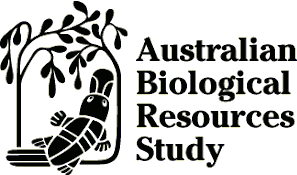Australian Tropical Rainforest Plants - Online edition
Ochna serrulata (Hochst.) Walp.
Click/tap on images to enlarge
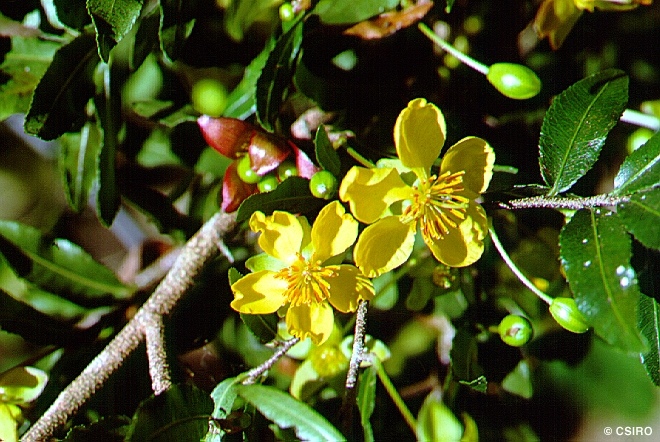
Leaves and Flowers. © CSIRO
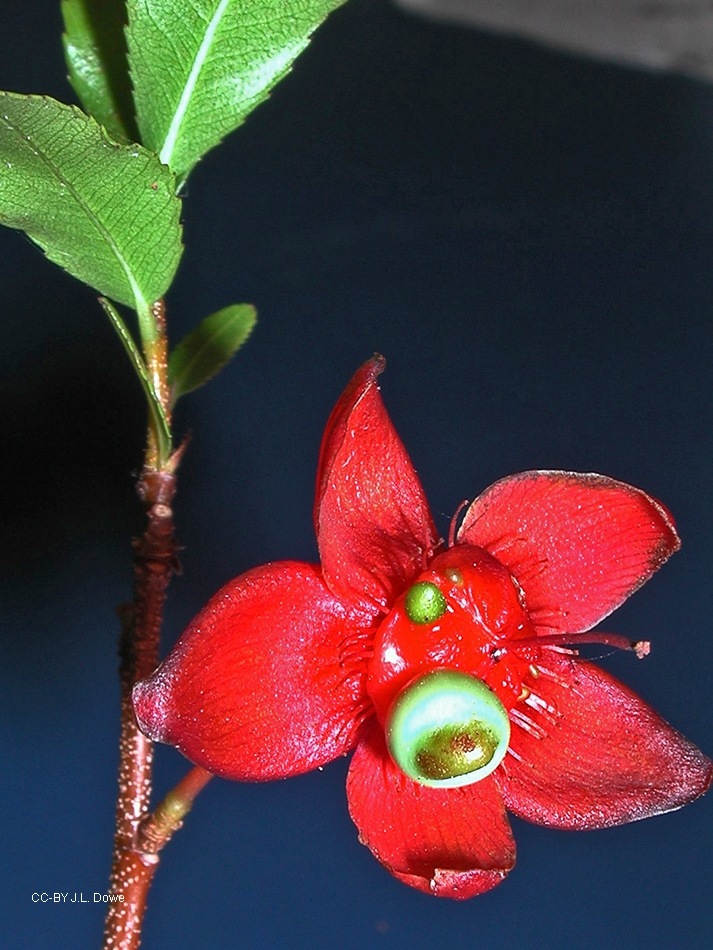
Fruit [not vouchered]. CC-BY: J.L. Dowe
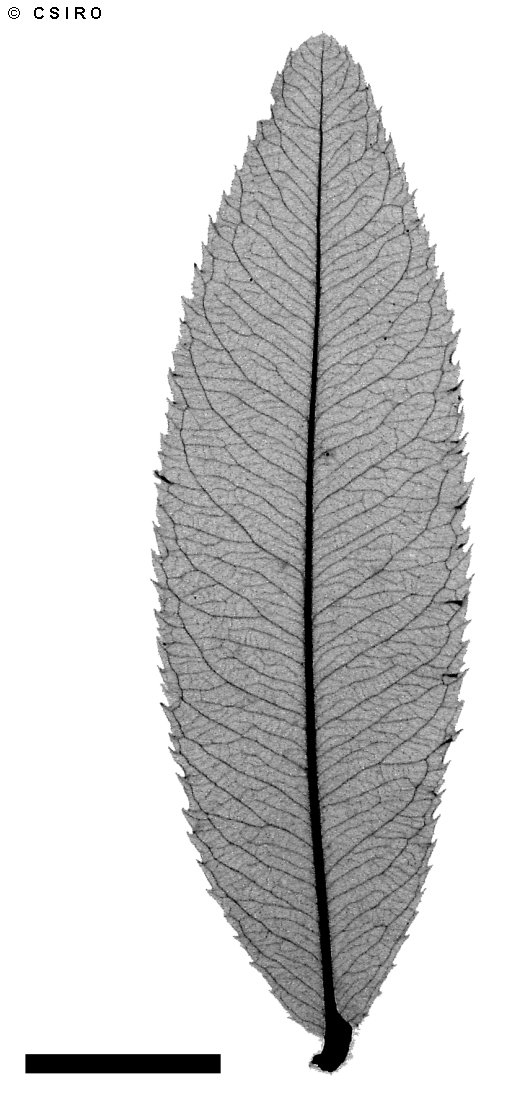
Scale bar 10mm. © CSIRO
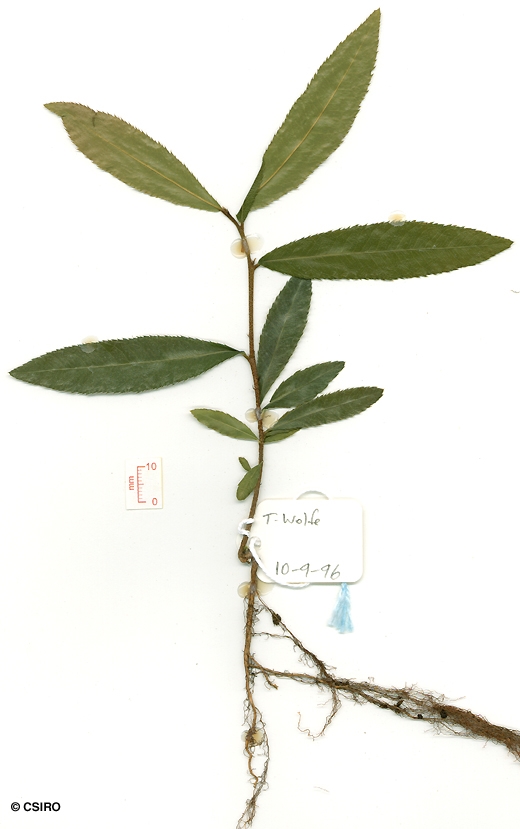
10th leaf stage. © CSIRO
Family
Walpers, W.G. (1846) Repertorium Botanicae Systematicae 5 : 400.
Common name
Mickey-Mouse Plant; Ochna
Stem
Usually flowers and fruits as a shrub about 1-3 tall.
Leaves
Flowers
Fruit
Fruits consist of a bright red receptacle with up to six black fruiting carpels embedded in it. Seeds about 8 mm long. Cotyledons about 8 mm long, radicle small.
Seedlings
Distribution and Ecology
An introduced species originally from southern Africa, now naturalised in NEQ, CEQ and southwards to coastal central New South Wales. Altitudinal range in NEQ from near sea level to 800 m. Usually grows as a garden weed, apparently distributed by fruit-eating birds but also found in disturbed rain forest.
Natural History & Notes
A commonly grown garden plant that produces yellow flowers and small black berries, now escaped because birds spread the seeds.
Synonyms
Diporidium serrulatum Hochst., Flora 27: 304(1844).
RFK Code
3398
Copyright © CSIRO 2020, all rights reserved.

Web edition hosted at https://apps.lucidcentral.org/rainforest



